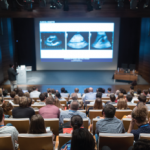 The COVID-19 pandemic has moved the field of rheumatology to the forefront of medicine at a California university hospital, where rheumatologists play a key consulting role in the use of biologics for treatment of some patients infected by SARS-CoV-2.
The COVID-19 pandemic has moved the field of rheumatology to the forefront of medicine at a California university hospital, where rheumatologists play a key consulting role in the use of biologics for treatment of some patients infected by SARS-CoV-2.
“We are experts in using biologics,” says Karina Torralba, MD, rheumatology chief and fellowship program director at Loma Linda University Medical Center, Calif. “There’s this widespread recognition that biologics are, by and large, the purview of rheumatologists.”
The university’s rheumatology division operates an infusion clinic and, often, receives patient referrals from dermatologists and gastroenterologists. In the early weeks of the pandemic, Dr. Torralba’s department helped develop a treatment algorithm for COVID-19 patients admitted to Loma Linda University Medical Center and seen for follow-up in its clinics.
“The role of rheumatologists is to counterattack the hyperactive immune response that can happen in [COVID-19] patients. Some patients develop a cytokine storm,” says Dr. Torralba.
Rheumatologists are typically more familiar with macrophage activation syndrome, often occurring in pediatric rheumatic diseases, than their colleagues in other medical fields, notes Dr. Torralba. Also called cytokine storm, this hyperactive immune response causes the body to release an overabundance of cytokines into the blood.
Background & Education
The presence of cytokine storm in some patients severely ill with COVID-19 led to a collaboration between the departments of infectious disease, critical care medicine, hospitalist medicine and rheumatology at Loma University Medical Center, says Dr. Torralba. The collaboration includes an agreement to consult staff rheumatologists before deciding whether to treat a patient who has the virus with a biologic, such as tocilizumab, an immunosuppressant drug used to treat rheumatoid arthritis, she says.
“On the inpatient side, [the agreement] actually changed our practice significantly, because rheumatology is in charge of making final decisions [about] which COVID-19 patients get biologics,” says Dr. Torralba.
Additionally, her department implemented cytokine storm education efforts for hospitalist and critical care physicians, and for fellows and medical residents who—before the virus outbreak—may have had little or no experience with the condition.
“A lot of people confuse the lab parameters of cytokine storm with the cytokine release that can happen with sepsis,” says Dr. Torralba. There are significant lab differences between the two responses that make a difference in whether to treat a patient with biologics, she notes.
The rheumatology division has taken on the task of identifying and monitoring possible cytokine storm responses in COVID-19 patients at Loma Linda Health medical facilities. The aim of biologic treatment is to prevent a “full-blown cytokine storm,” which often accompanies multi-organ failure and frequently leads to intubation, Dr. Torralba says.




